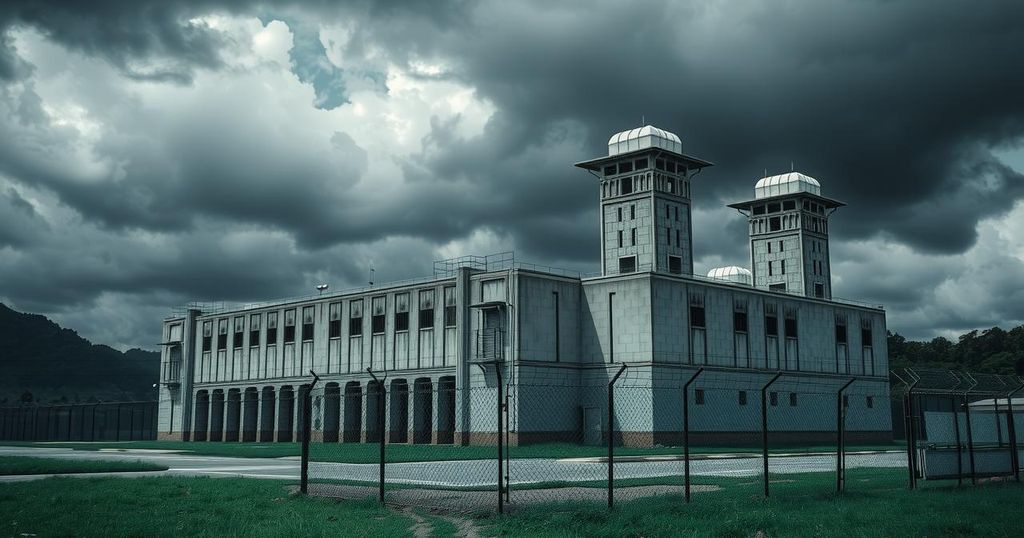Analysis of Recent Deportations to El Salvador’s CECOT Prison

The Trump administration recently deported over 200 alleged Venezuelan gang members to El Salvador’s CECOT mega-prison, prompting protests from families claiming their loved ones lack gang affiliations. Many deportees have no criminal records, raising concerns about the legal basis for their removals, as families fear for their safety amidst accusations without substantial evidence.
Over the past month, the Trump administration deported over 200 suspected Venezuelan gang members to El Salvador’s infamous mega-prison, CECOT, known for its human rights violations. U.S. Immigration and Customs Enforcement (ICE) reported that many of these individuals lack formal criminal records, yet an official remarked that this underlines the potential threats they pose, indicating a lack of detailed profiles on these individuals.
Representatives for the families of some deportees argue that their loved ones are not gang members. These families learned about their deportations through videos shared by government agencies, expressing fears regarding their relatives’ safety in CECOT. They shared personal stories with ABC News, highlighting that many individuals were simply seeking better lives away from violence.
Maiker Espinoza Escalona was detained while seeking asylum in the U.S. with his family and subsequently deported to El Salvador on March 30. His family denies accusations of gang affiliation and claims Escalona has no criminal background in Venezuela, attributing his detention to distinctive tattoos. Raida, the mother of his partner, expressed disbelief at widespread claims connecting half of Venezuela to the Tren de Aragua gang.
Jose Franco Caraballo Tiapa was detained during a scheduled ICE check-in and deported on March 15. His wife claims that he was not involved in any criminal activity and had an asylum hearing scheduled before being detained. After being transported to a Texas detention center, he mentioned possible deportation, which raised alarms about his current status.
Francisco Garcia Casique faced similar treatment when he was detained by ICE and deported on March 15. His brother confirmed that Garcia Casique had been pursuing a career in barbering and had a clean legal record, only to later discover he was in CECOT through social media.
Kilmar Armando Abrego Garcia’s deportation was described as an administrative error, according to ICE. Abrego Garcia, who has protected legal status and family in the U.S., fled gang violence in El Salvador. His attorneys assert that the government has failed to provide any evidence linking him to criminal organizations.
Jerce Reyes Barrios, who sought asylum from the Maduro regime, also faced deportation to El Salvador on March 15. Accusations of gang affiliation were based on a tattoo commemorating the Real Madrid soccer team, which authorities misinterpreted. Barrios, previously a soccer player and coach, also denies any connections to gangs, emphasizing his humanitarian contributions in the community.
The deportation of alleged gang members to El Salvador raises serious concerns regarding human rights and proper legal processes. Many individuals sent to CECOT have been accused without solid evidence, with families insisting on their innocence. Importantly, these cases highlight the complexities and potential injustices within U.S. immigration policies and procedures concerning asylum seekers and detainees.
Original Source: abcnews.go.com







